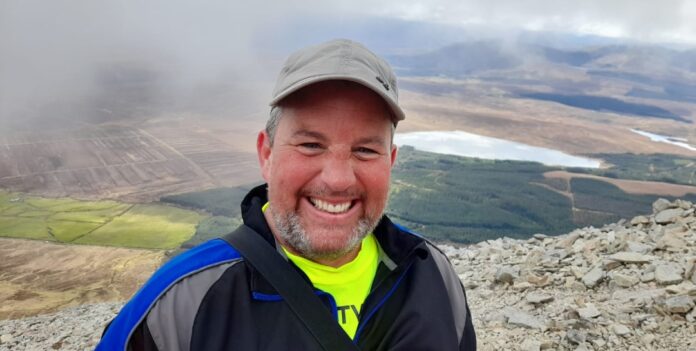PATIENTS shouldn’t feel the need to request politicians to assist them with medical card applications, according to a local health campaigner.
John Wall, a terminally ill prostate cancer patient campaigning for people with a terminal diagnosis to have improved access to medical cards, is working to make it easier for people to access medical cards as part of his role on a new government committee.
Mr Wall is a patient advocate on Communications and Information Working Group on Medical Cards, which also includes representatives from the Irish Cancer Society, Irish Hospice Foundation, Age Action Ireland and Citizen’s Information.
The Quin resident believes it is vital that clear information is provided to applicants on how to access medical cards.
“I am not looking from this group to change the rules that are in place. I am trying to use the rules that are in place to allow people to access services that are in place using medical cards.”
Following a meeting of this group last February, he recalled a number of issues are being addressed to make it easier for applicants to access information by streamline the current process.
He said this advisory group, which holds its next meeting at the end of the month, is making progress because it has direct access to the HSE’s Primary Care Reimbursement Service that deal with medical cards.
At a recent meeting, Mr Wall highlighted the inclusion of a possible means test on an emergency medical card application form for a terminally ill patient and requested its removal before the next meeting.
He confirmed this form now states a financial review is not required for a terminally ill patient, which is an important step as some end-of-life patient were not completing it due to this previous requirement.
If he wasn’t a member of this advisory group, he estimates trying to get this request achieved could take up to a year, which underlines the value of the committee driving change that benefits patients.
“Almost on a daily basis, I am getting correspondence from people who have issues trying to get a medical card or find out how best to apply for one.
“I got an email from a TD’s office not in Clare about the best way to approach a medical card case. Politicians are being approached to assist in the application process for a medical card. This is something we need to deal with.
“It is not appropriate that politicians need to get involved. Politicians have to get involved because of the way the medical card system has evolved.
“It is not appropriate the people feel the need to go to a politician to get access to a public service. Getting a medical card should be between the applicant, medical community and the HSE. This isn’t about politics, it is about health.”
“I am striving to eliminate that need. There is a need for the public to regain faith in the system they have lost faith in. It will take time.”
He is still campaigning to get the two-year limit concerning medical cards to terminally ill patients extended.
“This will be a much bigger battle because there is opposition around every corner. The two-year provision is a big help but there are a lot of terminally ill patients in the country that will not be dead in two years.
“If you are not dying quick enough, you don’t have an automatic entitlement to a medical card. I believe if you have a terminal illness, you have an entitlement to services that a medical card gives you access to.”
As part of his prostate cancer diagnosis, Mr Wall has Lymphedema and can access a new public clinic in Ennis for treatment every three weeks free of charge, which costs €120 for one private treatment.
Lymphedema refers to tissue swelling caused by an accumulation of protein-rich fluid that is usually drained through the body’s lymphatic system.
He described this pilot initiative, which is being rolled out nationwide, as a fantastic service for Clare patients.
“It allows people like me an independent type of living that I didn’t think was possible four years after surgery. It is a great service. Access to services like this is made easier by having a medical card.”
East Clare correspondent, Dan Danaher is a journalism graduate of Rathmines and UL. He has won numerous awards for special investigations on health, justice, environment, and reports on news, agriculture, disability, mental health and community.



